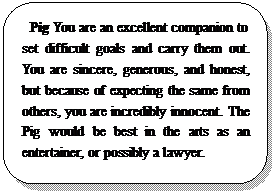
Is the world really going mad? The other day I was sitting in a small restaurant 1 a quiet drink and a talk with a few friends, when it suddenly 2 me that almost everyone in the restaurant was smoking. It wasn't long 3 the whole room was filled with smoke. I asked with an apology for permission to open a window to stop myself
4 !
Nowadays air pollution is something that we hardly question any more. However, I still can't walk down the streets in any of the big cities without 5 that people are suffering from the air pollution. It is time for the government departments the world over to introduce emission(废气排出)controls on all cars and 6 the public transport system(公共交通体系)to encourage people to 7 their cars at home. A friend of mine takes flying lessons each morning and it really makes him 8 when he climbs above the smog layer(烟雾层)and looks down 9 it and thinks:"I'm breathing that!"This kind of 10 results from the bad management of resources. Waste things can, 11 should, be treated properly. Housebuilding, road construction and industrial development are all earth-moving(or earth-reducing)operations and can change the balances of 12 created over millions of years. I would like to 13 serious studies done on all these main works before they are built. Also, there should be 14 national parks set up to keep the most beautiful parts of our countries in their natural 15 .
1. A. have B. had C. having D. have had
2. A. seemed B. struck C. sank D. showed
3. A. ago B. after C. before D. now
4. A. standing B. sitting C. talking D. dying
5. A. thinking B. persuading C. deciding D. learning
6. A. increase B. reduce C. improve D. raise
7. A. wash B. repair C. drive D. leave
8. A. sick B. tired C. foolish D. excited
9. A. on B. into C. from D. for
10. A. discussion B. question C. pollution D. operation
11. A. but B. yet C. still D. and
12. A. life B. mind C. human beings D. plants
13. A. see B. start C. enjoy D. pay
14. A. few B. any C. more D. no
15. A. situations B. states C. soils D. places
 名校课堂系列答案
名校课堂系列答案科目:高中英语 来源:2013-2014学年福建省高三上学期11月学段考试英语试卷(解析版) 题型:阅读理解

It’s common to hear the honking of horns in New York. Whoever tries every day to get more than a few minutes of sleep in the city will tell you that he could do nothing about it! Honking of horns is just one of their most widely enjoyed pastimes.
But Aaron, a Japanese website developer has had enough of it. Once, the 31-year-old man approached the open window to wait for the driver to finish honking, delivered a polite "excuse me" and then yelled " Ho-o-o-o-onk!", which suggests fierce anger in Japan. Then he threw three eggs from the window of his apartment on to a passing car honking loudly below when his patience was worn out. Instead of apologizing to him, the driver threatened to kill him angrily. So, nobly, Aaron turned to non-violence. He started writing anti-honking haiku verses, a form of Japanese poetry, and submitted them to local newspapers:
Oh .forget Enron;
The problem around here is;
All the damn honking
(Enron: a major American company that recently caused a scandal by going bankrupt because of corrupt(腐败) mismanagement)
"Then this kind of chain reaction started happening," Aaron says. "All these other haiku started appearing that I haven't written." Aaron’ s community is now covered in anti - honking poetry, written by all walks of life, ranging from scary environmental activist types to violent revolutionaries:
Patience slowly fades;
Residents store up their eggs;
That day is coming soon.
It’s no surprise that Aaron has started a website — www. honku. org — and now people from across the country send him news of their own anti - honking activities. It seems that poetry can change the world after all. Then, just recently, anti-anti- honking haiku started to appear, taped up by locals who thought Aaron should stop worrying about honking and start worrying about starving children, say, or war in the Middle East instead. Aaron has an answer for that. "Stop me if this is too tenuous(不靠谱的) ," he says," but they talk about the violence in the Middle East like it' s a force of nature, like it' s beyond our control. But actually it's kind of like the honking - the violence is man -made. If we can figure out how to stop honking on the streets, I think we could learn some things that we could use on a large scale. "
1.The first paragraph of the passage is intended to tell us that_______.
A. New Yorkers have formed a habit of honking while driving
B. most New Yorkers enjoy sleeping late in the morning
C. honking noise has influenced people's life in New York
D. New Yorkers enjoy listening to the honking of horns
2.What is Aaron’s final response to the frequent honking of horns?
A. Pretended to ignore it.
B. Screamed at the driver.
C. Acted in a peaceful way.
D. Complained to the government.
3.According to the passage, most New Yorkers think Aaron's response is ___.
A. pointless
B. abnormal
C. sensitive
D. acceptable
4.Faced with the criticism of his anti-honking campaign, Aaron notes that___.
A. fierce violence in the Middle East is more of an issue worthy of concern
B. finding the solution to anti - honking is as meaningful as that to starvation
C. big issues are beyond our control while small ones are under our control
D. if not handled properly, honking may cause serious problems like starvation
查看答案和解析>>
科目:高中英语 来源: 题型:阅读理解
Steve and Yaser first met in their chemistry class at an American university. Yaser was a(an) 36 student from Jordon. He wanted to learn more about American culture and hoped that he and Steve would become good friends. At first, Steve seemed very friendly. He always 37 Yaser warmly before class. Sometimes he 38 invited Yaser to eat lunch with him. But Steve seemed 39 after the first term was over. The two 40 classmates didn’t see each other very much at school. One day Yaser decided to call Steve. Steve didn’t seem very 41 in talking to him. Yaser was hurt by Steve’s change of 42 . “Steve said we were friends, ”Yaser complained(抱怨), “and I thought friends were friends 43 . ”Yaser is a little 44 . As a foreigner, he doesn’t understand the way Americans 45 friendship. Americans use the wor“friend”in a very 46 way. They may call both casual acquaintances(相识的人)and close 47 “friends”. These friendships are 48 on common interests. When the 49 activity ends, the friendship may fade. Now as Steve and Yaser are no longer classmates, their“friendship”has changed. In some cultures friendship 50 a strong life-long connection between two people. In these cultures friendships develop slowly, since they are built to 51 . American society is one of 52 change. Studies show that one out of five American families moves every year. American friendships develop quickly, and they may change just 53 quickly. Americans may at first seem friendly. But American friendliness is not always a(an) 54 of true friendship. Learning how Americans look at friendship can help non-Americans 55 misunderstandings.
| B. native | C. international | D. home |
| B. welcomed | C. invited | D. received |
| B. even | C. never | D. seldom |
| B. helpful | C. grateful | D. distant |
| B. normal | C. unusual | D. ordinary |
| B. shocked | C. interested | D. disappointed |
| B. relation | C. opinion | D. attitude |
| B. for once | C. for a time | D. for a while |
| B. confused | C. frightened | D. impressed |
| B. form | C. view | D. like |
46. A. general | B. unique | C. usual | D. strict |
47. A. relatives | B. companions | C. classmates | D. workmates |
48. A. depended | B. based | C. focused | D. set |
49. A. shared | B. connected | C. combined | D. chosen |
50. A. contains | B. damages | C. includes | D. means |
51. A. enjoy | B. last | C. appreciate | D. value |
52. A. slow | B. steady | C. rapid | D. similar |
| B. too | C. as | D. so |
| B. offer | C. advice | D. idea |
| B. ignore | C. forbid | D. forgive |
查看答案和解析>>
科目:高中英语 来源: 题型:阅读理解
Steve and Yaser first met in their chemistry class at an American university. Yaser was a(an) 36 student from Jordon. He wanted to learn more about American culture and hoped that he and Steve would become good friends. At first, Steve seemed very friendly. He always 37 Yaser warmly before class. Sometimes he 38 invited Yaser to eat lunch with him. But Steve seemed 39 after the first term was over. The two 40 classmates didn’t see each other very much at school. One day Yaser decided to call Steve. Steve didn’t seem very 41 in talking to him. Yaser was hurt by Steve’s change of 42 . “Steve said we were friends, ”Yaser complained(抱怨), “and I thought friends were friends 43 . ”Yaser is a little 44 . As a foreigner, he doesn’t understand the way Americans 45 friendship. Americans use the wor“friend”in a very 46 way. They may call both casual acquaintances(相识的人)and close 47 “friends”. These friendships are 48 on common interests. When the 49 activity ends, the friendship may fade. Now as Steve and Yaser are no longer classmates, their“friendship”has changed. In some cultures friendship 50 a strong life-long connection between two people. In these cultures friendships develop slowly, since they are built to 51 . American society is one of 52 change. Studies show that one out of five American families moves every year. American friendships develop quickly, and they may change just 53 quickly. Americans may at first seem friendly. But American friendliness is not always a(an) 54 of true friendship. Learning how Americans look at friendship can help non-Americans 55 misunderstandings.
36. A. American | B. native | C. international | D. home |
37. A. greeted | B. welcomed | C. invited | D. received |
38. A. ever | B. even | C. never | D. seldom |
39. A. familiar | B. helpful | C. grateful | D. distant |
40. A. former | B. normal | C. unusual | D. ordinary |
41. A. excited | B. shocked | C. interested | D. disappointed |
42. A. mind | B. relation | C. opinion | D. attitude |
43. A. for ever | B. for once | C. for a time | D. for a while |
44. A. delighted | B. confused | C. frightened | D. impressed |
45. A. express | B. form | C. view | D. like |
46. A. general | B. unique | C. usual | D. strict |
47. A. relatives | B. companions | C. classmates | D. workmates |
48. A. depended | B. based | C. focused | D. set |
49. A. shared | B. connected | C. combined | D. chosen |
50. A. contains | B. damages | C. includes | D. means |
51. A. enjoy | B. last | C. appreciate | D. value |
52. A. slow | B. steady | C. rapid | D. similar |
53. A. very | B. too | C. as | D. so |
54. A. suggestion | B. offer | C. advice | D. idea |
55. A. avoid | B. ignore | C. forbid | D. forgive |
查看答案和解析>>
科目:高中英语 来源:陕西省期中题 题型:阅读理解
查看答案和解析>>
科目:高中英语 来源: 题型:阅读理解
第二节 阅读下列材料, 从所给的六个选项(A、B、C、D、E、和F) 中,选出符合各小题要求的最佳选项,并在答题卡上将该项涂黑。选项中有一项是多余选项。
生肖在某种意义上可反映出人们的个性差异。阅读第61-65题中五个不同生肖的人物信息介绍和A至F关于六种不同生肖性格的介绍,并选出与每个人相应的生肖。
61. Johnny is a construction worker. He wor very hard to earn money and eventually earns more than the other workers. However, he is not welcomed by his companions because he always thin of himself first.
62. Tiffany is a middle school teacher who is very beautiful and clever. She can also be very romantic. She tries hard to plan her classes and make them lively and interesting. The students like her classes a lot.
63. Mr. White runs a trade company. However, his company is not doing very well because he is very sensitive
and stubborn. He has never listened to others’ opinions and just stic to his own ideas even if he is wrong.
64. Peter is a middle school student. He is very popular with his classmates and has a lot of good friends because of his honesty. He never lies and is always ready to help others. His dream is to become a secret agent in the FBI.
65. Linda is a university student. She is very confident in herself. She is the chairman of the Student Union at school and has successfully organized many activities. She is determined to become a doctor after graduation.
A B
 |  |
 C D
C D

E F
 |  | ||
查看答案和解析>>
湖北省互联网违法和不良信息举报平台 | 网上有害信息举报专区 | 电信诈骗举报专区 | 涉历史虚无主义有害信息举报专区 | 涉企侵权举报专区
违法和不良信息举报电话:027-86699610 举报邮箱:58377363@163.com